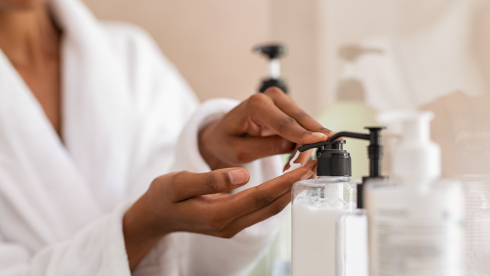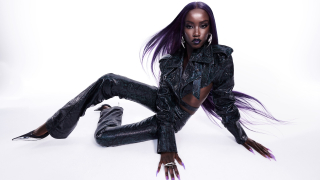When a person or a group wholly accepts a viewpoint without thinking about it critically, it is sometimes referred to as “Drinking the Kool-Aid.” The phrase stems from the Jonestown Massacre when Jim Jones convinced members of his “People’s Temple” to commit mass suicide by ingesting cups of the powdered soft drink laced with cyanide.
Recently, Snoop Doggy Dogg (…or Snoop Dogg… Or is it just Snoop now?) went on an internet rant about why he won’t be watching the new Roots remake. The expletive-filled Instagram tirade (which, I will submit as the most anti-gangsta move ever—unless I missed the part of Scarface where Tony Montana blasted his rival cocaine kingpin on social media) basically said he was tired of being fed entertainment in the vein of 12 Years a Slave, the new antebellum South era television show Underground, and the aforementioned Roots.
Mr. Dogg went on to lament about the lack of movies and shows about Black excellence, and how there is an imbalance in how we are portrayed in mass media. He continued with why he was angry about how they keep beating into our heads “how they did us,” and how it still persists, even to this day.
I’ve heard this before.
There are many people who are concerned that the only non-demeaning portrayals of people of color in mainstream media usually involve them wallowing in the pain of discrimination and abuse (this article explains why those people are wrong). I’ve heard legitimate, intelligently crafted arguments questioning why movies and TV shows like these are critically acclaimed (Both Selma and 12 Years a Slave were Oscar nominated films, while the Roots remake is an early Emmy favorite) while others are summarily dismissed as unimportant or lesser artistic achievements. Maybe Snoop raises a valid point. Even though it may be laced with profanity, maybe the Doggfather’s bone of contention is well-founded.
Until you realize he has been handing out cups of Kool-Aid too.
It is the definition of hypocrisy to berate someone for committing an offense against you and your people for which you’ve been doing yourself. Snoop’s IMDB page reads like a veritable smorgasbord for Black stereotypes. He began his career as a young rapper by popularizing the term “hoes” and making platinum out of a murder case. Since then he hasn’t strayed far from the image of the endless blunt-smoking Long Beach gang member who occasionally pimps on the side. He didn’t just perpetuate the myth of the new Black thug, he was one of the originators.
I know there are some who will say that Snoop’s music is a reflection of his reality and the world he lived in. That he is not a creator of fiction, but—like most good art—he is simply a mirror or a looking glass through which society sees itself. I agree. I love Snoop’s music, and his persona. Although I have never met him, he seems as real and genuine as any celebrity.
But I was smart enough not to drink his poison.
Snoop’s early life may have been a mixture of guns, weed and gangstas, and anyone who suggests that he doesn’t have the right to rap about it, commodify it, and sell his personal reality is wrong. The line where storytelling and “keeping it real” ends, and glorifying violence and heartache begins, is very blurry. Snoop should recognize this. For every fan who was inspired by him to create something that lifted themselves out of pain and poverty, there is another who equated “gangsta” with masculinity and “hoes” with women.
Besides, who is the “they” Snoop refers to as beating the narrative in our heads or subverting the positive stories? Snoop has made enough money to invest in art that tells those stories. He he has enough cash and cache to produce these desired shows. Maybe the stories of Black excellence are tied up in drop-top Impalas and gold-plated pimp goblets. But why expect something from “they” that you are not willing to do yourself? If Black people were to confront anyone about the lack of positive portrayals in the media, they should start with the Snoop Dogg-like Rumplestiltskins who lined their pockets with gold weaved from hood fairy tales of demeaning Black women and disposing of Black-boy souls in the name of the “G-Code.”
Such as it is with Roots, 12 Years a Slave is realer than Doggystyle, and Alex Haley is essentially Calvin Broadus. Both are artists who are simply saying, “This is what we went through.” It is ugly. It is painful. It might be demeaning, but it is their individual truths. If the director of Underground went on TV and condemned hip hop music and thug imagery, he would be quickly ostracized.
But we drink Snoop’s poison…because he’s “keeping it 100”?
I believe there is a coordinated effort in the way Black people are shown on TV and in film, but it bothers me when one artist publicly demeans another–especially when the criticizing artist has influence and an important voice. Especially when they have been doing a similar, if not more pronounced shuck and jive.
Perhaps the repeated reminders of the brutality we faced for centuries is depressing to some. It is understandable that some people are tired of rehashing a horrific past that punished us for just being Black. Maybe we need more uplifting and empowering visions on television and movie screens. Perhaps Snoop just doesn’t want his people ingesting toxins.
But it’s too bad he can’t see that he’s been passing out poison Kool-Aid too…
He’s just arguing about the flavor.
Michael Harriot has contributed to Deadspin, VerySmartBrothas, TheRoot as well as his own daily digital magazine NegusWhoRead. He also hosts The Black One podcast and tweets at @michaelharriot












